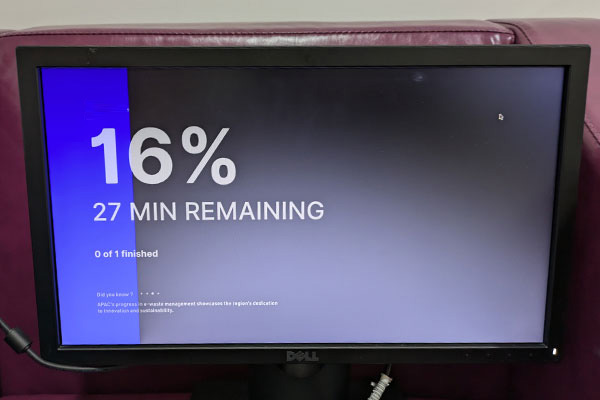Data Security in Singapore
Singapore’s thriving business ecosystem spans from Marina Bay financial districts to Tuas manufacturing zones, yet many organizations unknowingly expose themselves to severe data security risks. The misconception that standard file deletion or drive formatting provides adequate protection has led to costly compliance failures across various industries.
When businesses upgrade their IT infrastructure or dispose of equipment, conventional deletion methods leave digital footprints that skilled individuals can easily recover. This vulnerability becomes particularly concerning given Singapore’s position as a regional financial hub, where sensitive client information and proprietary data require the highest levels of protection.
The Personal Data Protection Act establishes clear obligations for organizations handling personal data throughout its entire lifecycle, including secure disposal. Companies that fail to implement proper data destruction measures face potential penalties reaching SGD 1 million, alongside reputational damage that can affect long-term business relationships.
Professional Data Destruction Standards
Certified data erasure involves systematic processes that render information completely unrecoverable through any known method. Unlike simple deletion, professional services employ multiple overwriting cycles using internationally recognized algorithms that meet stringent security requirements.
Modern storage technologies require specialized approaches for effective data sanitization. Traditional hard drives respond well to software-based overwriting methods, while solid-state drives demand cryptographic erasure techniques due to their unique architecture and wear-leveling mechanisms.
Professional providers maintain detailed documentation throughout the entire process, creating comprehensive audit trails that demonstrate compliance with regulatory requirements. This tamper-proof documentation proves invaluable during inspections or when validating data protection measures to clients and partners.
Singapore’s Regulatory Framework for Data Protection
The PDPA establishes comprehensive requirements for personal data handling, including specific provisions for data retention and disposal. Organizations must implement reasonable security arrangements that extend beyond active use periods to include secure destruction when information becomes unnecessary.
Financial services firms face additional compliance requirements under the Monetary Authority of Singapore guidelines, while healthcare organizations must adhere to specific patient data protection standards. These sector-specific regulations often mandate certified destruction methods with verifiable completion certificates.
The Cybersecurity Agency of Singapore regularly updates threat assessments highlighting the risks associated with improper data disposal. Recent reports indicate that improperly sanitized storage devices contribute significantly to data breach incidents affecting Singapore businesses.
Selecting Appropriate Data Erasure Methods
Different data types and storage technologies require tailored destruction approaches. Standard business documents stored on conventional hard drives can undergo software-based wiping using approved algorithms like NIST 800-88 or DoD 5220.22-M standards.
Highly sensitive information may require physical destruction methods, particularly when storage devices show signs of damage or contain classified materials that justify complete device elimination. This approach provides absolute assurance but eliminates any possibility of equipment reuse or resale.
Emerging storage technologies, including cloud-connected devices and embedded systems, present unique challenges requiring specialized expertise. Professional providers stay current with technological developments to ensure comprehensive coverage across all device types.
Implementation for Singapore Businesses
Data erasure programs begin with comprehensive asset inventories that identify all storage-capable devices within the organization. This includes obvious components like laptops and workstations, as well as often-overlooked items such as network equipment, servers, and mobile devices.
Establishing clear data classification systems helps determine appropriate destruction methods for different information types. Public information may require basic overwriting, while confidential client data demands more rigorous treatment with enhanced verification procedures.
Creating standardized procedures ensures consistent application across all disposal activities. These procedures should specify responsible personnel, required documentation, and verification steps that confirm successful completion of data destruction activities.
Cost-Benefits of Professional Services
Investing in certified data erasure services provides significant value compared to potential breach consequences. The average cost of data breaches in Singapore exceeds SGD 5 million when considering regulatory fines, legal expenses, and business disruption.
Professional services also enable equipment value recovery through secure refurbishment and resale programs. Properly sanitized devices retain functionality while eliminating security risks, allowing organizations to recoup portions of their technology investments.
Additionally, certified destruction services reduce internal resource requirements by eliminating the need for specialized staff training and equipment procurement. This allows organizations to focus on core business activities while ensuring compliance with regulatory obligations.
Professional data erasure services provide Singapore businesses with essential protection against regulatory penalties while enabling secure IT asset management practices that support both compliance and operational efficiency.

